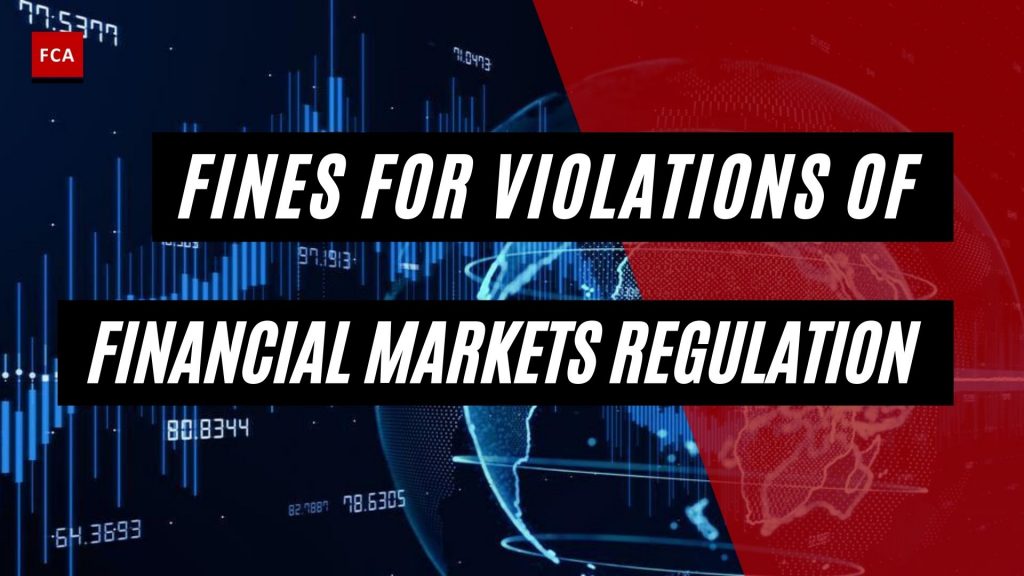Fines for violations of financial markets regulation. Market regulations compliance is a zero-tolerance area as a whole, because the principles relate to fair dealing with clients, and maintaining transparency in the financial markets, to retain the trust of the clients and, the growth of the economy. Market regulations such as SEC regulations, impose penalties due to non-compliance with various requirements, such as relating to insider trading practices, unfair dealing with customers, gaining personal financial benefits by employees, investments in restricted securities or shares, investments in banned jurisdictions, etc.

Fines For Violations Of Financial Markets Regulation
The penalties imposed by the regulators may vary, and they may be revised by the relevant government bodies or agencies. Therefore, the penalties may not be specifically mentioned for future periods, which are subject to change by the authorities.
Insider trading is against the policy of the company. Such trading can cause significant harm to the reputation for integrity and ethical conduct of the company. Individuals who fail to comply with the requirements of this Insider Trading Policy are subject to disciplinary action, at the sole discretion of the Company, including dismissal for cause. Violation of the prohibition on insider trading can result in a prison sentence and civil and criminal fines for the individuals who commit the violation, and civil and criminal fines for the entities that commit the violation.
Fenergo today released its findings on financial institution fines, revealing that global penalties for non-compliance with anti-money laundering (AML), know your customer (KYC), and sanctions regulations totaled $36 billion in December 2019. The ramifications of the global financial crisis have had a significant impact on fines related to AML, KYC, and sanctions violations, which have increased by 160 percent in the 15 months since the last Fenergo report. The fines for the Markets in Financial Instruments Directive (MiFID) and data privacy regulations such as the Global Data Protection Regulation (GDPR) total $82.7 million, according to the 2019 report.
Penalty
The penalty for insider trading may be the maximum prison sentence for an insider trading violation of 20 years. The maximum criminal fine for individuals may be $5,000,000, and the maximum fine for non-natural persons (such as an entity whose securities are publicly traded) may be up to $25,000,000.
Further, persons who violate insider trading laws may become subject to an injunction and may be forced to disgorge any profits gained or losses avoided. The civil penalty for a violator may be an amount up to three times the profit gained or loss avoided as a result of the insider trading violation.
Final Thoughts
The detection and punishment of misconduct is a key function of financial market regulation. Financial markets are particularly vulnerable to abuse in the absence of effective monitoring and enforcement of rules of conduct. As a result, regulatory penalties for third-party wrongdoings should be much higher than for second-party wrongdoings.
Banks have faced sanctions in the last few years for misconduct in the LIBOR and foreign exchange markets that far outnumber those seen during the study period. As a result, it appears that the need for more effective sanctions against third-party wrongdoing has been recognized.








